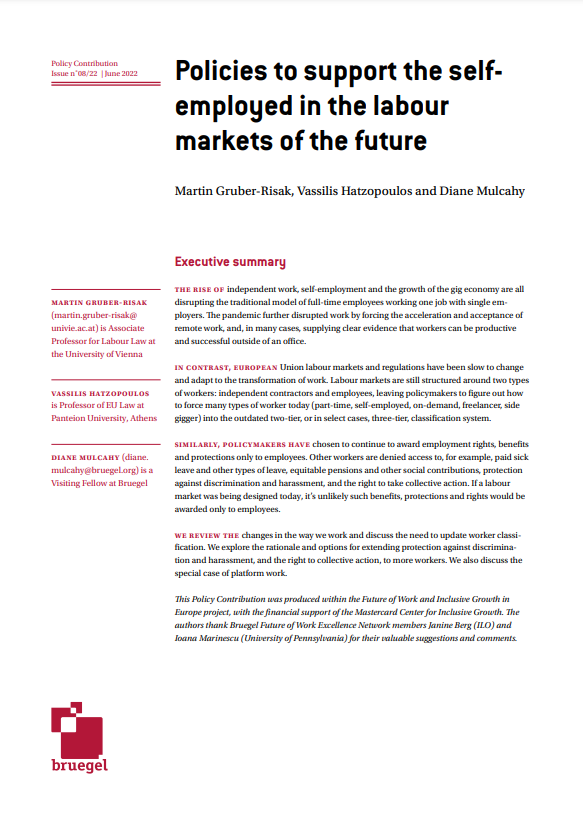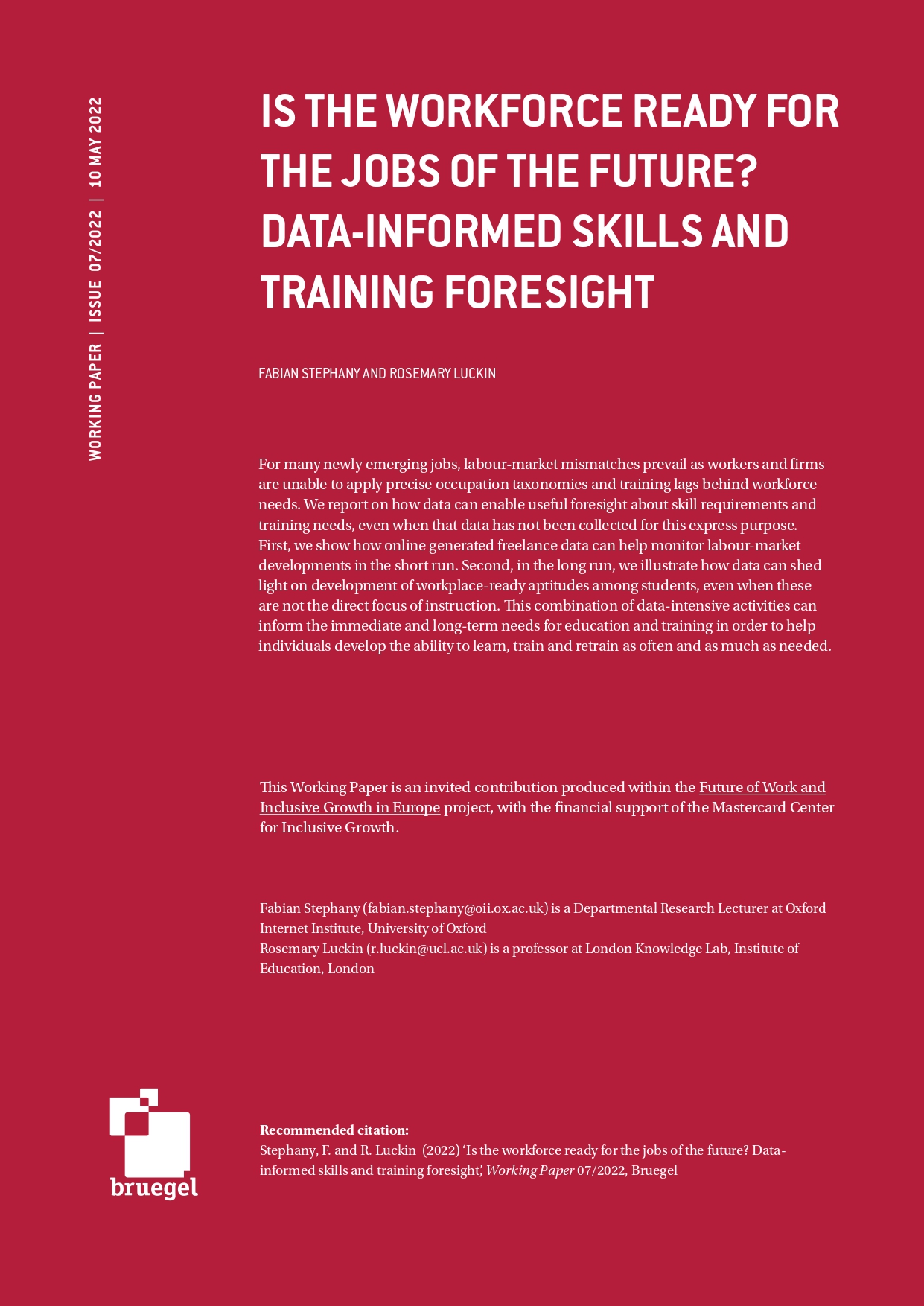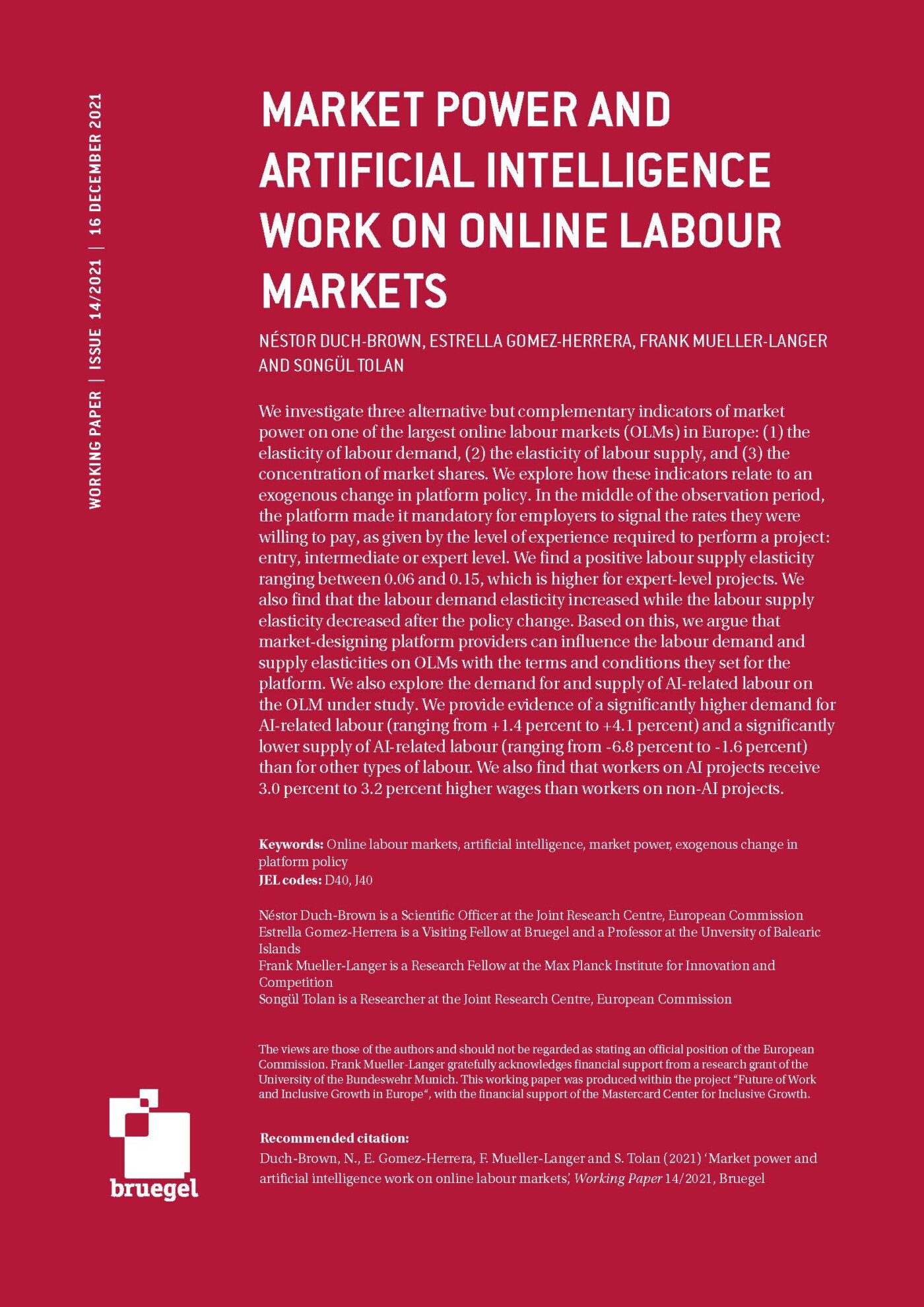Policy Contribution
Better pensions for the European Union’s self-employed
What is the current state of pensions policy in Europe and how are independent workers treated compared with their traditionally employed counterparts?
Self-employed workers are taking on a larger role in the European economy, particularly workers who operate as independent contractors rather than as small-business owners with their own workforce. Becoming self-employed offers flexibility and entrepreneurial potential, but can limit access to state-sponsored pension schemes.
We assess the current state of pension policy across the European Union and take a more detailed look at five countries to see how independent workers are treated compared with their traditionally employed counterparts. We consider how policymakers might adjust or even overhaul their pension offerings to improve opportunities for the self-employed, while being mindful of the broader policy context in areas like innovation and overall tax burdens.
In assessing policy options, it is useful to determine whether government, companies or individuals will be primarily responsible for paying for better pensions, and we structure our suggestions accordingly. Governments can make programmes more widely available, more consistent for all types of work and easier to understand and take part in. Companies can be encouraged to make pension contributions for all their workers, not just those they hire full-time. Individuals can be encouraged to set aside more for retirement with tax incentives, benefits flexibility and other policy measures.
Access to pensions for low-income, more vulnerable self-employed workers should be considered separately from access for higher-paid workers. The current system does not facilitate this and indeed inhibits it in jurisdictions where a minimum income is required to join self-employment pension schemes.
This policy contribution was produced within the project “Future of Work and Inclusive Growth in Europe“, with the financial support of the Mastercard Center for Inclusive Growth.
Recommended citation
Christie, R., M. Grzegorczyk and D. Mulcahy (2022) ‘Better pensions for the European Union’s self-employed’, Policy Contribution 05/2022, Bruegel











